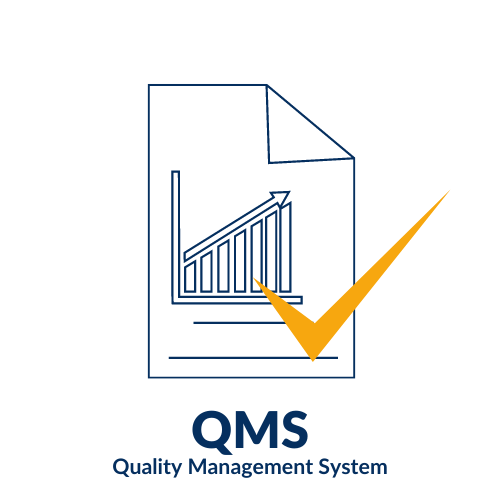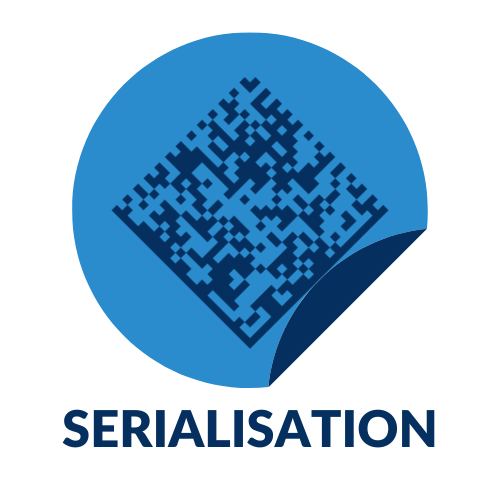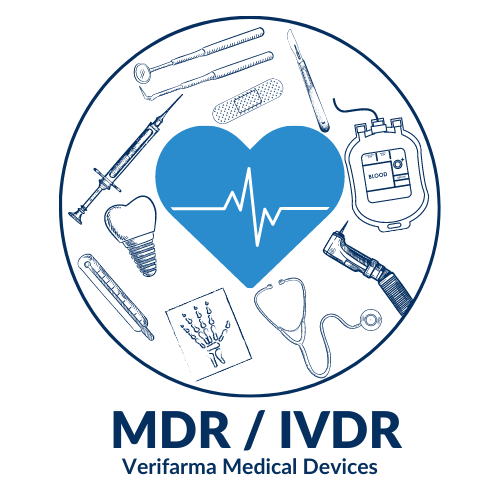

An integral solution for managing the areas of control, quality assurance and regulatory issues.
Main advantages:
- Integrated Quality Management System
- Reduction of recalls
- Reduction of OOS
- Reduction in calculation errors
- Automated COAS
- Circuit of electronic signatures
- Best preparation for audits
- Productivity growth

Ask about the product

QMS
A quality management system (QMS) is a formalized system that documents the processes, procedures and responsibility for achieving quality policies and objectives. The quality management system helps to coordinate and direct the activities of the organization in order to meet customer requirements and legal requirements, and to continuously improve their effectiveness and efficiency.
The implementation of a quality management system affects every aspect of the organization’s functioning. Benefits of a documented quality management system include:
- Meeting customer requirements, which helps instill trust in the organization, which in turn contributes to more customers, more sales and more regular transactions.
- Meeting the organization’s requirements, ensuring compliance with regulations and delivering products and services in the most cost-effective and resource-efficient manner, creating space for expansion, growth and profit.
Main functions
- GMS Management
- Claims and deviations managment
- Registration, preparation and management of internal and external audits
- CAPA & change control managment
- Document management (SOPS)
- Automatic maintenance of up-to-date versions, tracking of document updates
- Individual approval path
- Access to documents based on permissions and roles
- Automatic document flow
- Risk management
- Registration, evaluation of detected risks
- Preparation and registration of corrective actions and re-evaluation
- Program administration
- Preparation of procedures for periodically performed activities
- Supervision over the progress, timelines and quality of the execution
- Recalls
- Recall registration
- Tracking causes and related events
- KPI’s
- Individualisation of qualitative indicators
- Training administration
- Preparation of trainings
- Approval of the program and training materials
- Role-Based trainings
- Automatic exams in the system
- Defining, improving and controlling of the processes
- Waste reduction
- Errors elimination
- Cost reduction
- Facilitate and identify training opportunities
- Involved staff
- Setting the direction for the entire organization
- Communicating readiness to obtain consistent results
LIMS
From paper documents to spreadsheets, traditional data capture methods are often insufficient to meet the demands of a modern laboratory. Without the right tools, the registration, processing and analysis of samples is a complicated and time-consuming process. The large amount of data requiring archiving means that all organizational methods must be systematized and properly planned.
LIMS (Laboratory Information Management System) allows you to efficiently manage sample flow and related data to improve laboratory efficiency. The system helps to standardize workflows, tests and procedures while ensuring precise process control. Instruments can be integrated into the system to automate the collection of test data, ensuring that they are properly calibrated and operated only by trained personnel.
The audit and version control functions in LIMS are key reasons why customers use an electronic system and are “out of paper”. Unlike a spreadsheet, changes to the results are recorded as well as any changes to the test procedure, instruments used, and eg, reagents.

Main functions
- Calculation generator/li>
- Eases calculations, which are audited and validated avoiding errors/li>
- Allows to implement strategies according to the analysis procedure
- Management of calculation documentation
- Management of calibrations
- Integration with stability and routing testing.
- Verifarma IoT
- Integration with the laboratory suitable equipment
- Captures and records all the measurements made at time slots defined by the user
- Online indicators and alerts
- Monitoring and predictive analysis
- Management of results.
- Stability
- Management of Stability studies
- Integral management of deviations and results out of specification
- Scheduling of testing intervals
- Planning of weather conditions and tests
- Pull out alarm
- Statistical data
- Comparison of historical data.
- Inventory Manager
- Allows the management of all the supplies existing in the laboratory
- Generation of stock reports, control of stock, purchase requirements
- Management of stability samples
- Expiration dates reminder
- Minimum Stock for reagents.
- Routine tests
- Management of quality control tests
- Certificates of analysis (COA)
- Fast access to historical results
- Management of OOS (results out of specification)
- Planning of tests.
- Accuracy – getting accurate, repeatable results
- Productivity – automating and accelerating labor-intensive tasks
- Management – fast storage and retrieval of results



